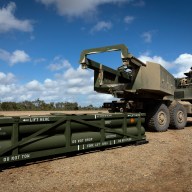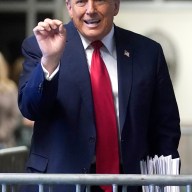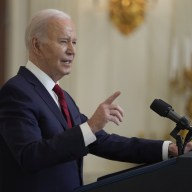 Philadelphia Mayor Michael Nutter, Boston Mayor Thomas Menino, and New York City Mayor Michael Bloomberg are members of Mayors Against Illegal Guns. Ilustration, Billy Becerra, Metro
Philadelphia Mayor Michael Nutter, Boston Mayor Thomas Menino, and New York City Mayor Michael Bloomberg are members of Mayors Against Illegal Guns. Ilustration, Billy Becerra, Metro
On April 25, 2006, New York City’s Michael Bloomberg and Boston’s Thomas Menino were joined by 15 other mayors for a summit at Gracie Mansion in New York City, where they would form Mayors Against Illegal Guns.
The group is a proposed political counterweight to the money and influence of the NRA, though its founders’ motivation went beyond just that.
The year before, Boston recorded a 10-year high in its homicide rate, with a large part of the city’s violence stemming from illegal handguns. There was a cost, the mayors understood, to continued inaction.
“We were seeing first hand the impact of illegal guns in our neighborhoods,” said James Sullivan, a federal relations officer for Menino. “A lot of it is caused by handguns coming in from out of state. Roughly 60 percent of the crime guns recovered in Boston come from out of state. In New York, it’s closer to 85 percent. It’s a national problem.”
Actually, according to new statistics from the Bureau of Alcohol, Tobacco, Firearms and Explosives, that number has grown to a full 90 percent of traceable guns used in crimes in New York City in 2011 coming from out of state, up from 85 percent in 2009. The main source of these illegal arms was Virginia with 322 guns, followed by 225 from North Carolina.
“That means, in addition to our tough enforcement efforts inside the five boroughs, we have to pay attention to gun laws outside of the city,” Bloomberg said when the numbers were released.
This pattern of supply is repeated across the region in cities like Boston and Philadelphia.
“For the states as a whole, the largest number of guns tend to be purchased from within state lines,” said Steve Bartholomew, public affairs officer for the ATF in Pennsylvania. “Though outside sources like Virginia, Ohio and Florida, just to name a couple that are in the top five, are eventually tracked into Philadelphia.”
Currently, if you buy a gun from a federal firearm licensed dealer (FFL), you need to show ID, pass a background check and have the sale recorded. It’s up to local city and state laws to regulate private sales, a system that currently sees 33 states requiring zero background checks, bills of sale or even ID verification for private gun sales.
This problem is compounded by online sites like armslist.com and budsgunshop.com, which offer eBay-like gun auctions around the clock, becoming, in effect, 24/7 gun shows for unlicensed dealers. Admittedly, if an online sale happens between two parties across state lines, the gun must be transferred through an FFL with all the standard checks and controls.
With a Pennsylvania congressional bill requiring universal background checks stalled for months, Philadelphia Mayor Michael Nutter — a member of the mayors coalition — has said one of the most effective things the city can do to keep guns out of criminals’ hands is universal background checks.
“It’s like setting up two different lines at the airport, one where you have to go through security and one where you don’t. Which one do you think the criminals are going to choose?” he said.
The checks must be “comprehensive and enforceable,” Nutter said. “Background checks are the only systematic way to stop felons, domestic abusers and people with severe mental illnesses from buying firearms.”
The point remains, however, that no state exists in a vacuum. The lax laws in one state, along with the stymied ability of the federal government to properly track and control the movement of firearms, effectively allows some states to export untraceable tools of violence and crime around the nation.
“We have some challenges in regards to firearms trafficking,” remarked Bartholomew, “like secondary markets online and private sales, when it comes to a gun that ends up in a crime. There may be a paper trail to the original purchaser, but if it’s transferred hands four or five times without any documentation, it can hinder the investigative process.
“Traffickers will often try to conceal themselves by obliterating serial numbers as well. It’s just one of those things we try to work through.”
Putting a stop to this flow of unchecked underground trafficking can be done, as some agencies have proposed. In 2009, the Journal of Urban Health published a study that found in cities where a background check is required for a private handgun sale, there was a 48 percent decline in intrastate illegal gun trafficking and a 64 percent decline in gun exports across state lines, as measured by the share of guns recovered at crime scenes.
“The most important thing we need to do is fix our current system for background checks,” said Daniel Webster, the study’s author and director of the Johns Hopkins Center for Gun Policy and Research, at a gun policy summit this year.
“It is really indefensible that we have a system that allows people to sell firearms with no background checks, no record keeping and no accountability. … A very small number of gun dealers contribute to a very large problem of fueling the illicit gun market.”
The debate over guns and gun culture in this country has been described as intractable. It’s an issue that is deeply personal to the mayors of all three cities.
“It’s my boss,” said James Sullivan, speaking of Mayor Menino, “who gets the call at night when a 13-year-old is shot or worse. We’re talking about a system that needs major improvement.”
















